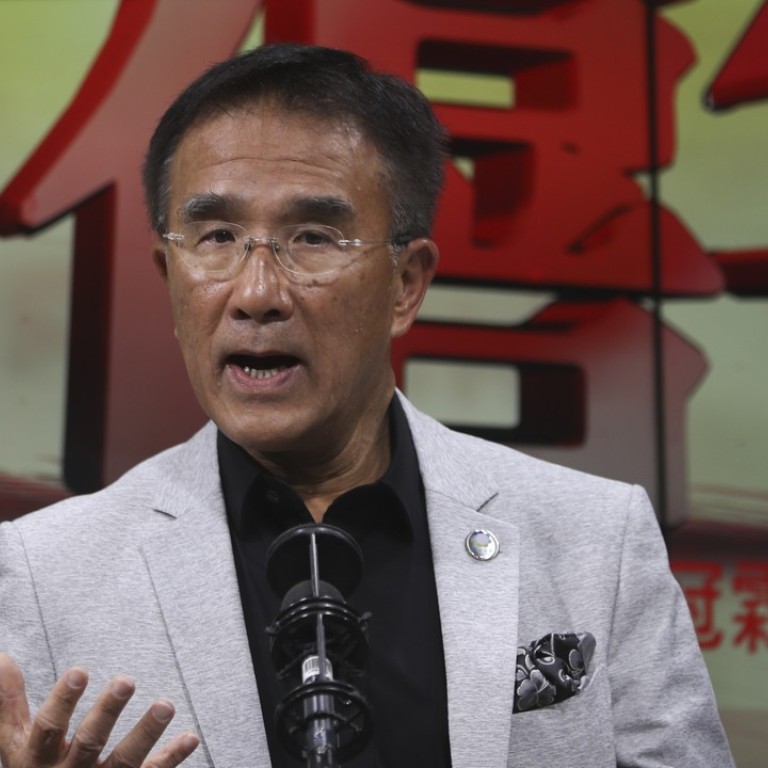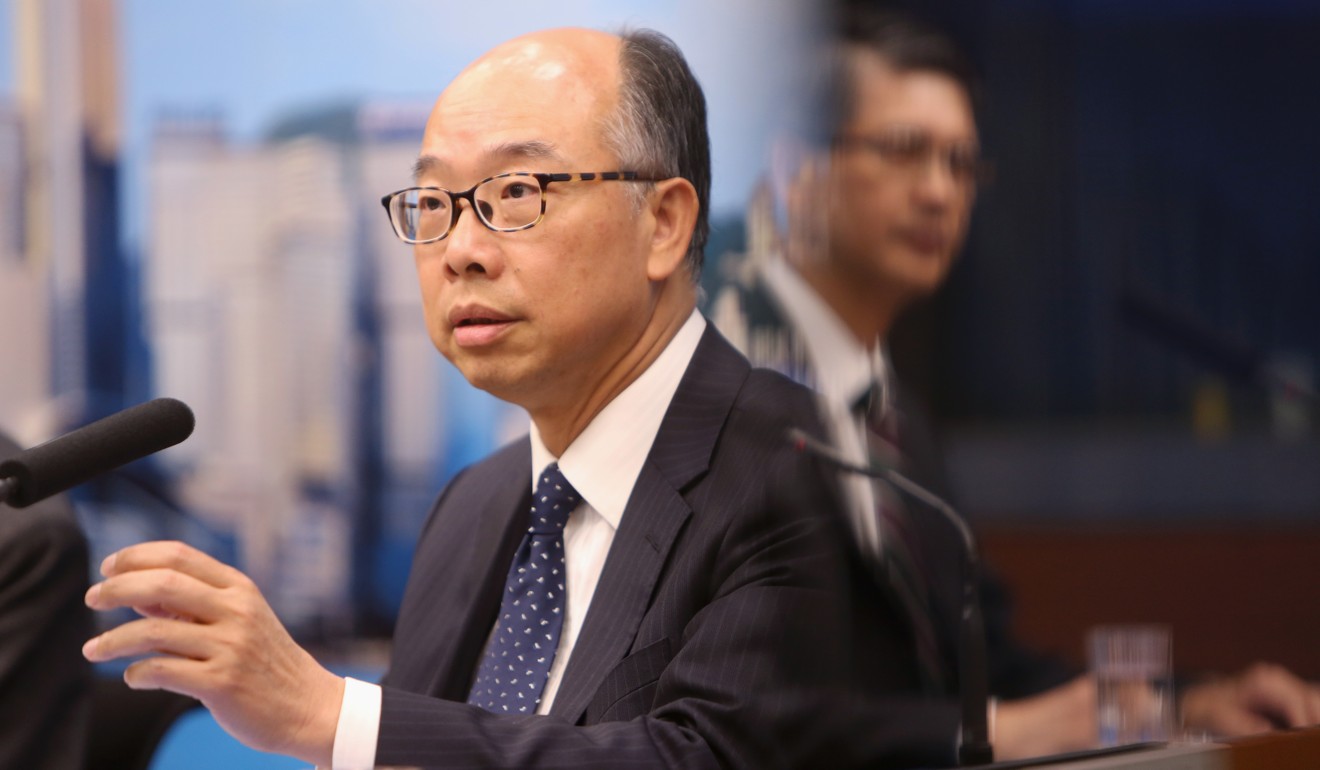
MTR Corporation and Hong Kong government locked in talks over subsidies for high-speed rail link between city and mainland China
Lawmaker Michael Tien says firm’s proposal would leave government covering all operational costs, while officials want to limit exposure as much as possible
Hong Kong’s rail operator has recently been locked in negotiations with the government over subsidies for the cross-border high-speed rail link, lawmaker Michael Tien Puk-sun revealed on Friday.
Set to open in late September, the Guangzhou-Shenzhen-Hong Kong Express Rail Link will provider passengers with a direct route from the West Kowloon terminus to Shenzhen, Humen and Guangzhou – three cities in neighbouring Guangdong province – and to 14 majors cities such as Beijing, Shanghai and Kunming.

Plagued by years of delays and budget overruns, the potential profitability of the line has been mired in controversy and mystery. In February, Chan said the HK$84.4 billion rail link might become profitable in eight years, after making an eyebrow-raising prediction of 50 years just five days previously.
On Friday morning, Tien, chairman of the Legislative Council’s subcommittee on matters related to railways, said on a radio programme that the MTR Corp had agreed to be subsidised by the government only when the annual income of the cross-border line goes below a certain level.
Tickets to mainland China get cheaper as service charge reduced
Meanwhile, the MTR Corp could retain 20 per cent of any profit if revenues exceed a certain point.
The operational cost of the express railway is estimated to be HK$1 billion per year.
“The sticking point now is how exactly the limits should be set,” Tien said.
According to the lawmaker, if the range is set between HK$700 million and HK$1.3 billion, and the high-speed line makes only HK$600 million a year, the government’s subsidy would be HK$100 million.
But, if the railway made HK$1.4 billion a year, the government would take about 80 per cent of the HK$100 million excess, leaving HK$20 million to the MTR Corp for “floating costs”.
The government was planning to use the money made by the Kowloon-Canton Railway Corporation, a company it fully owns, to pay the subsidy if it had to, so it could circumvent the Legislative Council, according to Tien.
“The basic principle [of the subsidy mechanism] is that the bottom and upper limits should be the same amount less and more than the annual cost of HK$1 billion. Otherwise the agreement will be an unfair treaty,” he said.
Tien said the government wanted to set the bottom line as low as possible – and he would like to see that happen – because “it’s most important to reduce the chances of providing subsidies”.
However, the MTR Corp wanted a range as narrow as possible. “If the limits are set at HK$50 million below and above the annual cost, it will in fact make the government cover all the operational costs,” Tien said.
A spokesman for the MTR Corp said the company was in final discussions on the operational agreement with the government.
“The agreement will be announced soon after everything is settled,” he said.
In a separate interview with the Post, Tien said the MTR Corp would receive about 80 per cent of the ticket fare on short journeys to Futian and Shenzhen North stations, and about 40 per cent of the fare for longer journeys to Guangzhou South.
Passengers on high-speed rail link to go through five-step ticket and security process
The deal between the MTR Corp and its mainland counterpart, the China Railway Corporation, was made after considering factors such as electricity use, journey distance, and operating costs, according to Tien.
The government earlier announced that passenger fares would be HK$80 for a journey to Futian, HK$80 for Shenzhen North, and HK$260 for Guangzhou South.
On radio, Tien said he believed the subsidy mechanism would give the MTR Corp more incentive to promote the high-speed rail link, because the number of passengers would directly affect its profits.
“I think MTR Corp should consider offering interchange discounts for passengers of the high-speed rail link taking the subway to and from the West Kowloon terminus,” Tien said.


